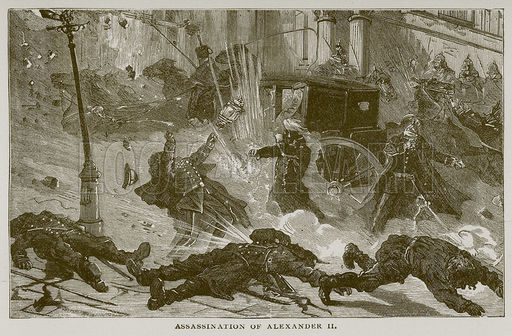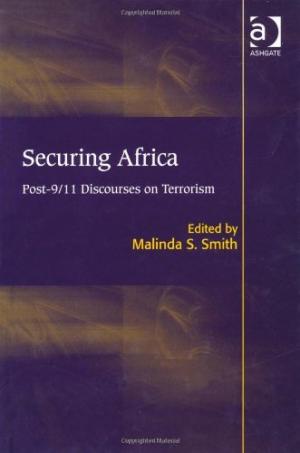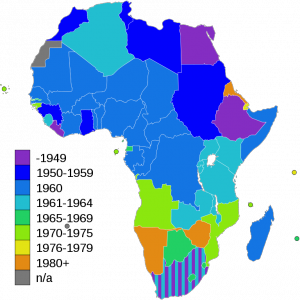Cross-posted from Chris Rose’s blog, where he regularly tells us Important and Useful Things and makes us laugh along the way. In addition to his many other accomplishments, Chris is the brains and motor behind our podcast 15 Minute History.
Ladies and Gentleman, I give you … Terrorism and Extremist Movements. Ta-Da! The reaction that this has caused in a few people has been … well, probably predictable.
The reaction that this has caused in a few people has been … well, probably predictable.
“You’re teaching WHAT?”
“Oh, for God’s sake, Chris.”
“What does this have to do with your dissertation?” (I particularly like this question, as if any of the other courses I’ve ever taught have anything to do with my dissertation. In fact, I should like to meet anyone who teaches an undergraduate class on the topic of their dissertation.)
If there were one thing I would say that I didn’t think through on this one, it’s that maybe the semester I’m trying to finish writing and start revising my dissertation wasn’t the best time to also try and teach a brand-new class on material that I am not intimately familiar with.
I can do 20th century Middle East or the Rise of Islam in my sleep. However, that’s also the reason why I didn’t want to teach either of those courses again.
As an adjunct, I don’t get to innovate. I actually wouldn’t mind coming up with a class on The Middle Eastern Front in World War I, for example. There’s a lot of stuff to unpack there.
The issue is that I’m teaching a general education course under the topic “Challenges of Globalization.” For two semesters I taught a course on the 20th century Middle East in which I framed the topic question of whether it’s fair to blame the Skyes-Picot Treaty and European imperialism for the state of the region today (in two semesters, my students never quite figured out that this question…printed front, center, and top on the syllabus…would also be their final exam prompt).

A thoroughfare in the medieval quarter of Cairo. Egypt had the strongest naval fleet in the Mediterranean at the time Spain discovered the New World, but most high school students don’t learn about that. To be fair, I didn’t really understand this until I was in grad school—and yet, I realized I was teaching undergraduates as if this were common knowledge. (Photo: Chris Rose)
However, it was the aforementioned ability to recite this material in my sleep that, it turned out, was the problem. I realized about four weeks into my first semester of teaching that the problem wasn’t my students, it was me. I assumed a lot of background knowledge. Way too much background knowledge.
Here I was talking about the inner workings of the Ottoman Empire when I knew from years of experience that the Texas world history curriculum barely mentioned it. (Trust me, I know.) I was speaking in shorthand and my students didn’t have the answer key.
I quickly went into revision mode, changing my approach for the rest of the semester. The next semester, I revised the curriculum further, tightening the focus and narrowing the amount of material covered.
I also realized that it might be best to get away from the material for a bit. After two semesters of teaching it (and the extra hours both doing prep work as well as writing a dissertation), I was bored with the material and recognized the dangers of what this might mean in terms of my attention to the class and my propensity to shorthand.
What might help, I thought, would be a new subject entirely.
First, I dumped the long academic course name with the colon (yes, I did that).
Then, I decided to focus on student expectations. My university has a strong criminology program, as well as a strong political science program. How do I appeal to those majors?
So … the idea of doing a course on terrorism sprang to mind. (I honestly don’t remember why). It would be comparative; after all, despite popular memes to the contrary, terrorism is not just a Middle Eastern phenomenon. I wanted it to be global in focus. But, other than South Asia, in which I do (terrifyingly) have the requisite number of credit hours to pass myself off as an expert … was I qualified to teach a globally focused class?

The first modern terrorist groups formed in tsarist Russia in the nineteenth century. One group, The People’s Will, assassinated Tsar Alexander II in hopes of sparking a popular revolution.
Then I had an idea: what if I didn’t teach the entire class? What if the class, working in groups, each took responsibility for a particular movement in a particular global region, and contributed to the learning environment? The more I thought about this, the more I liked it; and others that I shared the idea with were enthusiastic.
So, I put a proposal together and it went on the course schedule and I did what pretty much everyone does: I forgot about it until about two months beforehand when the campus bookstore started prodding me for my textbook choice.
Despite what seemed like insurmountable odds and a few nights of lost sleep, I produced a syllabus and guidelines for a class that I hope will be not only be successful but also interesting to my students.
I was honest with my students the first day: this is an experiment, and if this isn’t what you’re looking for in a course and you’re not on my roster at the end of the week, no hard feelings. I lost a couple, but the vast majority stayed put.
So, here’s to an experiment. I look forward to sharing how it goes.
More from Christopher Rose on Not Even Past:
 The inhuman event of the 9/11 attacks and the upsurge in terrorism in the world have forced western countries, especially, the United States, to re-examine their relationship with Africa.
The inhuman event of the 9/11 attacks and the upsurge in terrorism in the world have forced western countries, especially, the United States, to re-examine their relationship with Africa. 